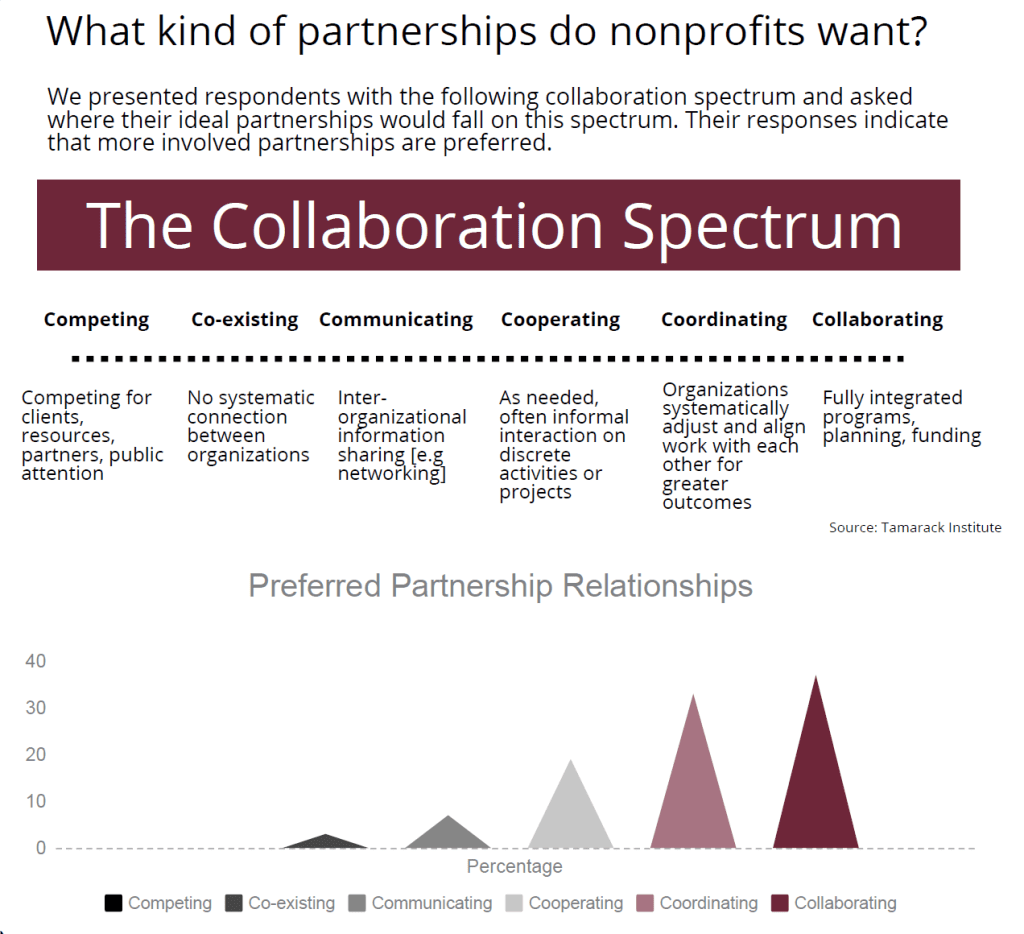Collaboration in Little Rock
In fall, 2019, researchers with the Little Rock Congregations Study (LRCS) at the University of Arkansas at Little Rock reached out nonprofits in the city of Little Rock to ask them about collaboration and service. Using public records from the IRS, we were able to email 329 service-based nonprofit organizations in Little Rock. We also distributed links to our survey on Facebook, through organization list servs, through our website, by speaking to local organizations, and by word of mouth. A total of 118 nonprofit leaders responded to our survey, for a response rate of about 35%.

On December 11, 2019, the LRCS research team released the executive report of our findings from the fall 2019 study. The data show that nonprofit organizations view collaboration quite positively. The vast majority of nonprofits, 79%, say that they partner on their most important program and 75% say that they plan to have a partnership in the coming year.
Partnerships can take many forms. At one end of the spectrum, non-partnership relationships are competitive or co-existing. At the other end of the spectrum, partners work together in a truly collaborative way, sharing in program, planning, and funding. Respondents to our survey indicated greater support for more collaborative relationships, as seen in the corresponding figure.
Where are the best opportunities for collaboration? Looking at specific issue areas, right now nonprofits tend to work with other nonprofits when it comes to providing education services, with private businesses when it comes to providing health services, and with congregations when it comes to providing food services.

Indeed, we see the area of food aid as one with a lot of potential for collaboration between congregations and nonprofits. When we surveyed religious leaders in 2018, we found that nearly half of our responding congregations provided food pantries. Places of worship are often on the front lines of feeding the hungry in our city. Our survey of nonprofits in 2019 revealed that about 17% of responding nonprofits provide services focused on healthy eating habits. This could be a really interesting area of overlap for nonprofits and congregation-based food pantries to work together to educate people who are food insecure about preparing healthy meals, while providing them with the food to do so.
This is just one example of the collaboration that is possible when organizations and individuals in our city connect on the issues that matter to them and to our community. The Little Rock Congregations Study is preparing a major survey of congregation members in fall 2020 to help places of worship determine which issues matter most to their members and to connect them with organizations they can partner with to make a difference in our community. Participating congregations will receive a report on the aggregate data of their responding members and on the full sample. Interested congregations should contact the LRCS Project Director, Dr. Rebecca Glazier, [email protected].
